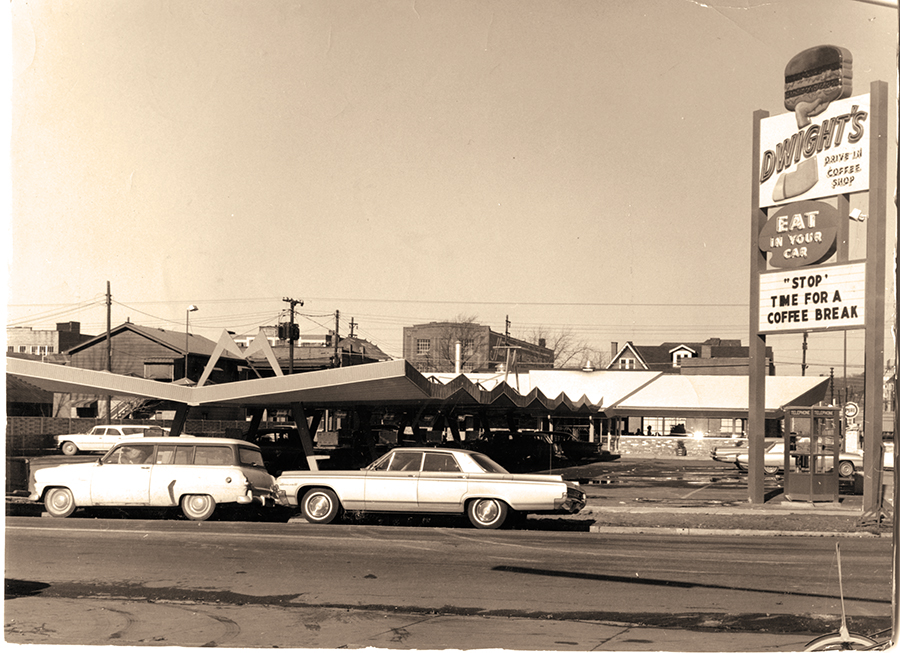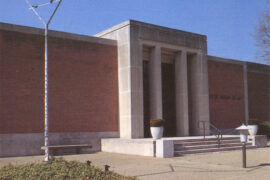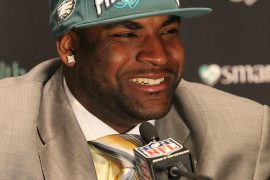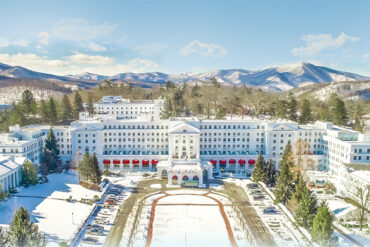In part one of a two-part series, we take a trip down memory lane and recall 10 restaurants that people from Huntington used to call their favorites.
By James E. Casto
HQ 73 | SPRING 2011
Today’s Huntington is blessed with many good places to eat. There’s somewhere for every taste and pocketbook. Nevertheless, we sometimes find ourselves thinking about the restaurants of yesteryear. In this article, the first part of a two-part series, we pay tribute to some of the city’s vanished restaurants. Surely you’ll find one or more of your favorites included here.
Bailey’s Cafeteria

Floyd Walker’s aunt and uncle, Morris and Sadie Bailey, opened Bailey’s Cafeteria in 1934. Shortly after it opened at the Fifth Avenue Hotel, Bailey’s moved to the 400 block of Ninth Street, where it remained for the next 60-plus years.
When the Baileys died, their son George took over the business. Walker joined him as a partner and later became sole owner. Barry Smith, who started his restaurant career washing dishes at Bailey’s when he was a high school student, bought the business from Walker in 1990.
At the height of its popularity, Bailey’s had a clientele so loyal that some people ate there nearly every day, patiently waiting their turn in the food line, making their selections then following a waitress as she carried their tray to a table, unloaded it and poured them a glass of water from one of the colorful Blenko pitchers placed on each table. The menu varied little over the years. Fried chicken, stuffed pork chops, country steak and gravy — and of course the mouth-watering homemade pies — were customer favorites.
But each year saw Bailey’s faithful customers getting older and fewer. Despite its best efforts, the cafeteria seemed unable to attract younger patrons. That fact, combined with a general decline in downtown business, forced Bailey’s to close in the late 1990s.
BrewBakers

For more than a half-century, the Huntington Store (originally named Huntington Dry Goods) was one of the city’s leading department stores. But the store closed in 1982, and for the next few years the once-proud building on the corner of Third Avenue and Ninth Street was little more than an eyesore.
But in the mid-1990s, the building stirred with new life as the home of BrewBakers — a unique combination of brewpub, restaurant and bakery. The old department store offered just what the fledgling enterprise needed — plenty of room and an interesting structure with huge windows and a vintage-1890s tin ceiling 14 feet overhead.
The atmosphere at BrewBakers was casual and inviting, the food delicious and the beer tasty. Gleaming metal tanks visible to both diners and passersby on the street produced an array of different brews. Just a few steps away, the bakery offered hearth-baked breads, croissants and muffins.
BrewBakers was one of a half-dozen downtown Huntington restaurants that closed in 1998-99, victims of an ailing economy. But during its brief life, BrewBakers served up some memorable meals and fun times. Today, the building houses the Marshall Hall of Fame Café, a restaurant with a Marshall University sports theme.
Dwight’s

Feb. 2, 1995, was a sad day on the South Side of Huntington. That’s the day the news came that Dwight’s of Eighth Street was closing.
David Messinger, a partner in the popular drive-in restaurant with his father and two brothers, told the newspaper, “It was a matter of economics. Somebody wanted the property worse than we did.” Today, the main office of First Sentry Bank stands on the former restaurant site.
The Messinger family had operated the restaurant since 1963. Over the years, it became a neighborhood institution. People flocked to Dwight’s for the hearty breakfasts, the Husky steak sandwiches, the strawberry pie and the coffee, which many swore was the best in town.
With the closing of the restaurant, some faithful patrons moved to Dwight’s of First Street, a 24-hour eatery operated by the Messingers at 601 First Street. But another dark day came in 2003 when the family decided to shut down the First Street restaurant rather than renovate it.
The French Tavern

“Service to a family by a family.” That was the motto of the French Tavern, one of Huntington’s most popular restaurants for more than 50 years.
The popular eatery got its start in 1924 when George and Ida Weydisch combined their European restaurant know-how to open a West Huntington restaurant they named Frenchie’s. The restaurant became the French Tavern when the Weydischs moved it to Piedmont Road 10 years later. In 1936, it was moved again, to 2349 Adams Ave.
For nearly four decades, customers flocked to the small building that housed the popular restaurant. There, they could enjoy a menu that featured hand-cut steaks, live lobster and other seafood items, homemade bread and incredible desserts.
After the Weydischs retired, Ida’s son Henry Bode and his wife Frances operated the restaurant. In 1974, their son George Bode and his wife Jenni took over the restaurant and moved it to much larger location — a former Kroger supermarket at Adams Avenue and West 19th Street. The new location offered a public dining room decorated in keeping with the old French Tavern’s decor and a separate supper club with live entertainment, along with banquet facilities. The relocated restaurant closed in 1980.
Heritage Station

When it welcomed its first customers in 1978, Heritage Station was the crowning touch for Heritage Village, the restaurant/retail complex fashioned from Huntington’s historic Baltimore & Ohio Railroad passenger and freight depots. Located in the vintage-1892 passenger depot, the restaurant faithfully reproduced the look of that bygone era.
Heritage Station offered seating for 80 patrons at round tables covered with colorful red-and-white checked tablecloths, plus a private dining room upstairs. The inviting bar area featured a handsome antique wooden bar with a solid brass foot rail and gleaming beer taps. The pub-style menu featured garnished hamburgers, sandwiches, soups, salads and an extensive wine list.
The restaurant was later sold and over the following years operated under a series of owners and names with varying degrees of success. Today, it houses the offices of the Cabell Huntington Convention and Visitors Bureau.
Ming’s

As a teenager, Ming Eng made his way from his native China to Toronto, Canada, where he worked as a busboy and waiter. Within 10 years he was the head chef at a Toronto restaurant, and it was there that Huntington’s Harold Frankel, owner of the Route 60 Holiday Inn, found him. Frankel convinced Eng to come to Huntington to be the chef at the Makiki Club, a Polynesian-style supper club at his motel.
Later, Eng would open his own restaurant, Ming’s, taking over the former Elephant Walk, a private club at the Hotel Frederick. The room offered all manner of fanciful elephant touches — colorful paintings, a carpet with elephant footprints, bar stools fashioned to look like elephant feet and a colorful mural of dancing elephants. But it was the delicious food, not the décor, that drew patrons to Ming’s and kept them coming back for more.
For the next 30 years, Ming held forth in the kitchen, and his wife Lisa managed things out front. Thus, it truly seemed like the end of an era when Ming’s closed at the Frederick. But Eng wasn’t ready to call it quits just yet. He would put in another decade at a new location in the Stone Lodge motel on Route 60.
In November 2009, however, the big sign outside the restaurant spelled out the bad news — Ming’s was closing, this time for good. After working 15 hours a day for 40 years, Eng said he was looking forward to taking a vacation — his first ever.
Mycroft’s

If you’re a fan of the Sherlock Holmes mysteries, you know that Mycroft Holmes was Sherlock’s smarter brother. Today, it’s a mystery why the original owners of Mycroft’s Bar and Grill named it as they did. In any event, Mycroft’s is just a fond memory. The eatery at Third Avenue and 20th Street closed its doors in 2004 and Marshall University later demolished the building.
But for more than 20 years and under various owners, Mycroft’s was a popular spot with Marshall students and others. Located little more than field goal away from the Marshall football stadium, Mycroft’s was always a crowded, hectic place on game days.
Lunch at Mycroft’s featured delicious sandwiches, and the dinner menu offered more ambitious fare, including sirloin steak, a BBQ rib platter, smothered chicken, blackened chicken pasta and vegetarian pasta.
Rebels & Redcoats Tavern
“You’re kidding me, right? You’re really telling me that one of the best restaurants in this town is in a bowling alley?”
Over the years, people in Huntington took great delight in introducing disbelieving out-of-town visitors to Rebels & Redcoats Tavern, the nationally acclaimed restaurant housed under the same roof as Colonial Lanes.
Originally, Rebels catered only to the Colonial Lanes bowlers, serving draft beer, soft drinks, crock cheese and an original sandwich of kosher corned beef, cream cheese and sweet onion. But the arrival of liquor-by-the-drink in West Virginia in 1967 triggered a decision by partners Lloyd Frankel and Charles R. Neighborgall to expand Rebels into a full-service restaurant.
Rebels offered a gourmet menu and wine list in a Williamsburg-style setting of rustic brick and wood, a large wood-burning fireplace, pewter plates, ruby red goblets and stained glass windows by Blenko. A big part of the restaurant’s appeal was its nightly live music, generally an enjoyable mix of dance music and Broadway show tunes. On a busy Friday or Saturday night, it was hard finding room on the crowded dance floor.
Frankel died in 1986 and Rob Neighborgall became manager. In 2004, long-time customers were shocked to learn that Rebels, citing increased competition from other restaurants, was closing as a full-service restaurant and returning to its roots as a tavern. Today, Rebels remains a popular spot for fun-seekers but serves only drinks, appetizers and selections from the Colonial Lanes grill.
Thabit’s Restaurant

In 1914, Mike Thabit, who came to this country from Lebanon, opened a small restaurant on the corner of Third Avenue and Eighth Street in downtown Huntington. A few years later, he moved to larger quarters on Eighth Street where he operated the Aster Restaurant and Candy Co., selling a variety of homemade candies. In 1946, the Aster Restaurant moved to 1117 Fourth Ave. and became Thabit’s Restaurant.
For more than 60 years, Thabit’s would be a landmark eatery in Huntington. Years passed, and times changed — but Thabit’s didn’t. Instead it kept right on doing what it had always done — serving tasty homemade meals at reasonable prices and, in the process, attracting a loyal band of customers. A group of attorneys, downtown businesspeople and others regularly lunched at their favorite table.
For years, Lanese Thabit worked alongside her husband. In a 1999 interview, she shared the secret to the restaurant’s long-running success: “We cater to customers just like a family would. If their food isn’t right, I tell them to send it back. I want to give customers what they want.”
Daughter Andrea Thabit was born into the business and began working at the restaurant full time shortly before her father’s death. Her brother Louis helped her out from time to time. In 2007, she decided it was time to retire, and so the doors at Thabit’s were closed for the last time.
Ward’s

It’s long after midnight. You need a cup of coffee and maybe a bite to eat. But where to go? For more than 50 years, an easy answer to that question was Ward’s, a 24-hour doughnut shop at 1345 Fourth Ave. that was a late-night favorite with Marshall University students, shift workers, taxi drivers, police officers on patrol and other nighthawks.
The red neon sign out front promised “Deliciously Different Donuts,” and the tasty doughnuts that owner Paul Ward Sr. served up delivered on that promise. Ward said he used an old family recipe from Tennessee to make his delicious “potato doughnuts.” Ward opened his shop in 1947 and operated it until 2000.
“I’m 77 years old now, and it’s just time,” he said in explaining his decision to close the shop.





